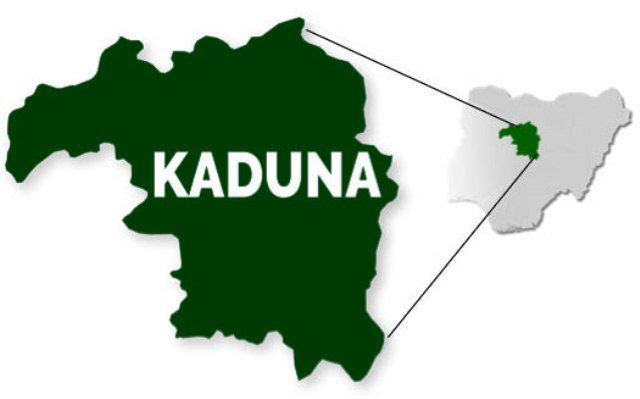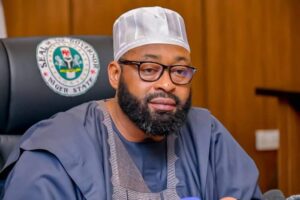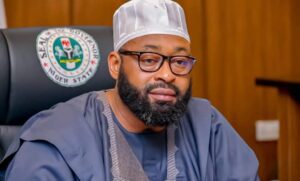
Kaduna’s education policies boost school enrolment – Commissioner
The education policies and programmes introduced by Governor Uba Sani’s administration in Kaduna State have significantly increased school enrolment, according to the Commissioner for Education, Professor Sani Bello.
Speaking at the Quarterly Ministerial News Briefing in Kaduna on Wednesday, Bello attributed the surge in enrolment to initiatives that have expanded access to education and created a more conducive learning environment. He emphasised that these efforts align with the governor’s campaign promises.
The commissioner highlighted the construction of new schools and additional classrooms, along with improvements in teaching and learning quality. He noted that since the administration took office, over 600 classrooms have been built under the State Universal Basic Education Board (SUBEB), while several others are undergoing renovation.
“The days of students studying in unconducive environments are being addressed,” Bello stated.
He further revealed that 62 new secondary schools have been established under the Adolescent Girls Initiative for Learning and Empowerment (AGILE) project, with plans to build an additional 50 schools before the administration’s second anniversary.
Additionally, six science secondary schools, funded by the Islamic Development Bank (IsDB), are now fully operational.
“That project had been stalled for 16 years before this administration completed it, and over 2,000 students have now been enrolled in these pure science schools,” Bello explained.
He also pointed to improved student performance in national examinations, such as WAEC, NECO, and NABTEB, citing an increase in the pass rate for five-credit results from 54 per cent before the administration took office to 67 per cent currently.
The commissioner highlighted Governor Sani’s commitment to making tertiary education more affordable, referencing his first Executive Order, which reduced tuition fees in state-owned institutions by 40 per cent. This reduction has led to higher student enrolment at institutions such as Kaduna State University (KASU), Nuhu Bamalli Polytechnic, and the College of Education, Gidan-Waya.
“Before this administration, many students transferred to tertiary institutions in neighbouring states or dropped out entirely due to high tuition fees,” Bello said.
He further disclosed that state-owned tertiary institutions have introduced new academic programmes, which have been approved by regulatory bodies, including the National Universities Commission (NUC), the National Board for Technical Education (NBTE), and the National Commission for Colleges of Education (NCCE).
Bello reaffirmed the administration’s commitment to reducing the number of out-of-school children by expanding educational facilities. He noted that the initiative is being supported by five development partners, including the Islamic Development Bank (IsDB), the Kuwait Fund for Arab Economic Development (KFAED), the Global Partnership for Education (GPE), Education Above All (EAA), Save the Children International (SCI), and UNICEF.
According to the commissioner, the Bureau of Statistics has mapped out communities lacking schools to guide intervention efforts.
“As part of this project, 102 new schools will be built, while over 200 existing schools will be renovated,” he said, adding that the goal is to ensure no child walks more than one kilometre to access a school.
Bello also provided updates on the Special School for Gifted Children in Millennium City, stating that the project is 90 percent complete. He added that the Tsangaya Bilingual Schools initiative has seen significant expansion with support from UBEC-IsDB.
He reiterated the administration’s determination to enhance the state’s education system, ensuring that every child has access to quality learning opportunities.




